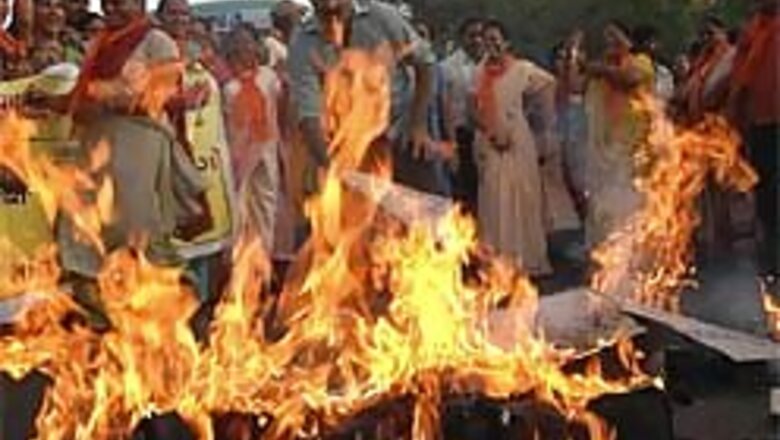
views
Islamabad: The Pakistani media has praised India for showing restraint and not indulging in "finger pointing" following the bomb attacks in Jaipur that could have affected the ongoing composite dialogue between the two countries.
The two countries, however, would have to continue to be on guard to prevent terrorist groups from carrying out attacks that could set back the peace process and put key economic projects like the India-Pakistan-Iran gas pipeline on the back-burner, newspapers warned.
Condemning the multiple blasts in Jaipur on Tuesday, leading English daily Dawn wrote: "...no Indian government official has blamed Islamabad or any Pakistan-based organisations for the crime, and this should serve to reassure us that New Delhi has refrained from an exercise in finger pointing that could have affected the ongoing composite dialogue."
"The motives behind the crime could include another bid to sour India-Pakistan relations... It is time the two governments redoubled their efforts to tackle the monster of terrorism jointly," the lead editorial in Dawn on Thursday said.
The Daily Times' editorial titled "Jaipur must not derail Indo-Pak peace process" too praised India for refraining from a knee-jerk reaction.
"It is also an event that could give space to hardliners within India to point fingers towards Pakistan," it said, describing New Delhi's action of refraining from a knee-jerk reaction as "a positive fallout of the four-year-old normalisation process".
The Times said: "Pakistan and India have moved closer as never before to signing the final papers on the Iran-Pakistan-India gas pipeline which is expected to take both countries out of their energy crisis. An agreement on Siachen and Sir Creek is nearing."
"Trade and travel prospects are looking good. But this is precisely the juncture at which it is greatly tempting for terrorist groups opposed to Pakistan-India normalisation to strike. If the bilateral equation goes sour, these projects - already late by decades - could go on to the back-burner once again," the edit read.
The media praised Prime Minister Yousuf Raza Gilani for swiftly condemning the blasts and Indian Foreign Secretary Shiv Shanker Menon for refusing to blame Pakistan ahead of his visit to Islamabad this month to review the composite dialogue.
Menon and External Affairs Minister Pranab Mukherjee are scheduled to visit Islamabad on May 20 and 21 for talks with their Pakistani counterparts to review the composite dialogue process.
Describing the bombings as "tragic", The News said in an editorial that there should not be any finger-pointing till "some results" emerged from the probe into the blasts. It said: "acts of terrorism that take place in India often have ramifications that go beyond the matter of the loss of life".
"Already, at least one (Indian) minister has suggested a 'foreign hand' is involved. While he has refused to name Pakistan, the implications are clear...Indeed, the allegation of outside involvement is also heard almost equally often in Pakistan after such incidents," the editorial said.
"Till some results from this emerge, it would be wise not to engage in any kind of game of accusation or insinuation. And, in the meanwhile, it goes without saying, that should the need arise, Pakistan must extend all possible help and cooperation in tracking down the bombers."



















Comments
0 comment